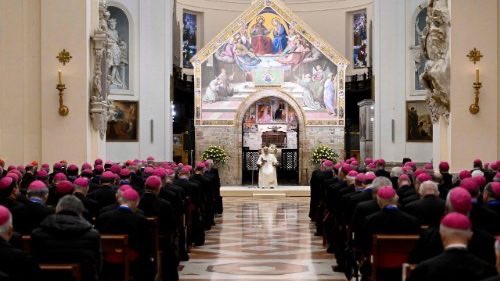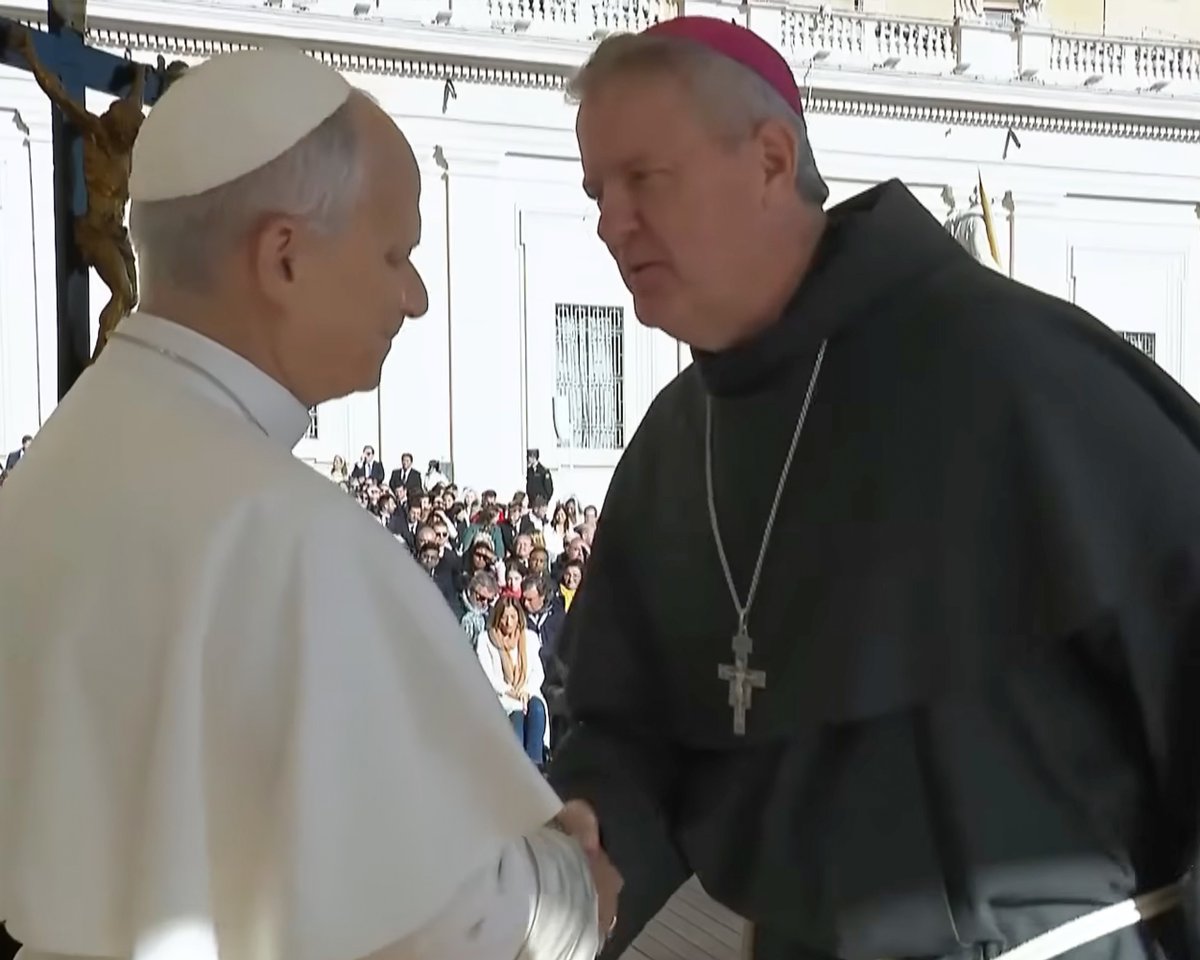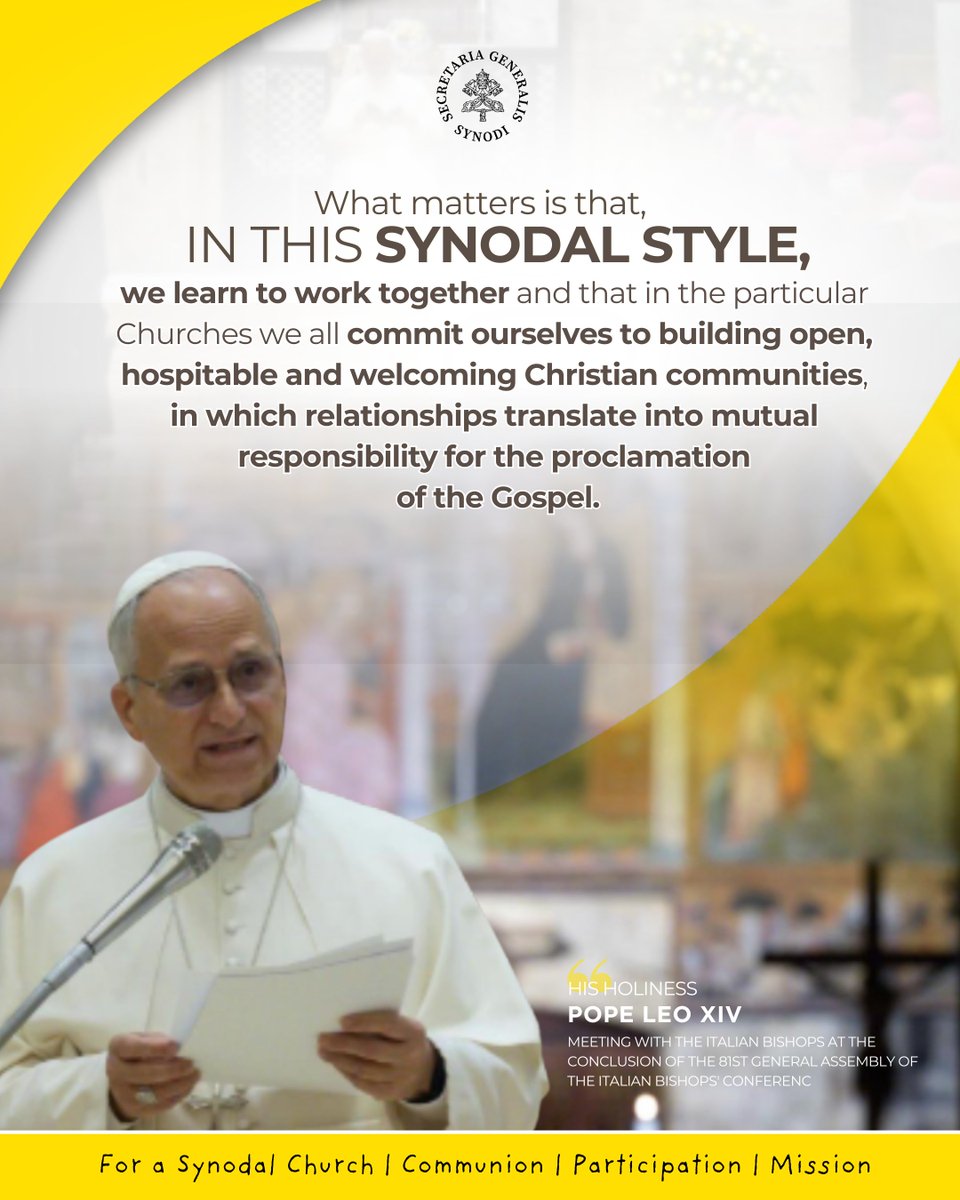Just asking…
Thirteen Inconvenient Questions
for the Society of St. Pius X

It has now been over three years that the priestly fraternity established in 1970 by Abp. Marcel Lefebvre, the so-called Society of St. Pius X (SSPX), has had a new superior general. On July 11, 2018, the SSPX general chapter convened in Econe, Switzerland, and elected Fr. Davide Pagliarani for a twelve-year term to succeed Bp. Bernard Fellay as head of the group, who had been in office since 1994.
Considering how antithetical to all the SSPX stands for, the last eight-and-a-half years under “Pope” Francis (Jorge Bergoglio) have been, one would think that the Lefebvrists are up in arms against the brazen apostasy being constantly perpetrated by the man they insist is the Vicar of Christ on earth. Yet, especially when compared to the 1980s and 1990s, one hears fairly little protest from this group that considers itself to be the last bastion of Catholic orthodoxy.
Perhaps this has something to do with the fact that Francis, being the master manipulator he is, has showered the SSPX with gifts and concessions, feigning his sympathy, for this cannot help but keep the Lefebvrists well-disposed towards him at least on a personal level. That is not to say that they do not oppose or criticize Bergoglio at all — they certainly do — but considering the constant outrages, heresies, and utter chaos that emanate from the Argentinian Jesuit, in addition to his frequent moves against anything resembling Catholic Tradition, one would expect the Lefebvrists to be at their utter maximum of resistance, outrage, and condemnation. Yet, that is not the case. We recall that in 2017, Bp. Fellay lamented that once again the attempted reconciliation with the Modernist Vatican had failed yet again.
In the past, we have critiqued and exposed the errors of this Society many times:
- The SSPX and “Pope” Francis: Theological Absurdistan on Full Display
- Pope Pius IX condemns Lefebvrist Theology
- SSPX Superior General blasts ‘Traditionis Custodes’: A Sedevacantist Critique
- Epic Fail: Bp. Bernard Fellay’s Interview Fiasco with Tim Sebastian
Today we would like to reissue a challenge to the clergy and/or lay adherents of the Society of St. Pius X to answer the following thirteen questions. We had originally presented a similar list, of twelve questions, back in 2015, but with virtually no response.
All questions ought to be answered, insofar as applicable, with proof from authoritative Catholic magisterial sources, such as papal encyclicals, decrees of ecumenical councils, or approved catechisms and theological manuals, before the death of Pope Pius XII (1958). Novel concepts, such as “partial communion” or “Eternal Rome vs. Today’s Rome”, are not acceptable, as they have no foundation in Catholic teaching. In addition, anyone answering these questions ought not to seek refuge in vague formulations or ambiguous expressions: “But let your speech be yea, yea: no, no: and that which is over and above these, is of evil” (Mt 5:37). Please answer clearly, directly, straightforwardly.
- Are you, or are you not, in communion with “Pope” Francis and his religion?
- Do you agree that, in the final analysis, it is for the Pope and the Pope alone to say who is and isn’t in communion with him, as Pope Pius IX teaches in his encyclical Quartus Supra?
- Do you agree, as the First Vatican Council teaches, that “in the Apostolic See the Catholic religion has always been preserved untainted, and holy doctrine celebrated” (Denz. 1833)?
- Do you agree, as the First Vatican Council teaches, that Francis, who you insist is the Pope of the Catholic Church, “is the supreme judge of the faithful,” of whom you consider yourselves a part, “and that in all cases pertaining to ecclesiastical examination recourse can be had to his judgment; moreover, that the judgment of the Apostolic See, whose authority is not surpassed [not even by the SSPX], is to be disclaimed by no one, nor is anyone [including the SSPX] permitted to pass judgment on its judgment” (Denz. 1830)?
- Do you submit to Francis in the same manner as you would have submitted to Pope St. Pius X had you lived during his reign?
- Do you agree with Pope St. Pius X’s teaching that “the first and greatest criterion of the faith, the ultimate and unassailable test of orthodoxy is obedience to the teaching authority of the Church, which is ever living and infallible….”? (Allocution Con Vera Soddisfazione, May 10, 1909)
- Who has the final say on what is orthodox doctrine — Rome or Menzingen? If Rome doesn’t have the final say in our day, why did it have the final say in 1910, and when did it switch from “final say all the time” to “final say sometimes, depending on what they decide, as judged by Menzingen”, and who decided that?
- In his encyclical Satis Cognitum, Pope Leo XIII teaches: “You are not to be looked upon as holding the true Catholic faith if you do not teach that the faith of Rome is to be held” (n. 13; quoting St. Augustine). Do you believe and teach “the faith of Rome”?
- Do you believe that the Catholic Church, Bride of Christ, “regards with sincere reverence those [Pagan] ways of conduct and of life, those precepts and teachings which, though differing in many aspects from the ones she holds and sets forth, nonetheless often reflect a ray of that Truth which enlightens all men” (Vatican II, Declaration Nostra Aetate, n. 2)? Do you believe that “Pope” Paul VI, “by the Apostolic Authority handed down to Us from Christ, together with all the Venerable Fathers, in the Holy Ghost approve[d], decree[d] and establish[ed] these things” and, furthermore, that Paul VI, by his supposed apostolic authority, ordered these things “to be promulgated unto the glory of God”, as the conciliar document says at the very end (see here Latin original)?
- Suppose for a minute that Paul VI was not a valid Pope, as we Sedevacantists argue. Would you then agree that all of the sacramental rites he promulgated in which the essential matter or form were changed, could be invalid?
- If you answered “yes” to the previous question, do you agree then that Sedevacantism is the safer course to take, just in case it should turn out that Paul VI was indeed not a valid Pope?
- If there should be a dispute among SSPX clerics on how to answer any of these questions, why is that, and who gets to decide which set of answers is the “real” Catholic position?
- If you dislike any of these questions, why is that?
For an organization that prides itself in supposedly teaching and upholding traditional Roman Catholicism, these questions ought not to cause offense, nor confusion, nor consternation.
Image sources: composite with elements from Wikimedia Commons (Bruno Vallette) and Shutterstock
Licenses: CC BY-SA 3.0 use and paid






No Comments
Be the first to start a conversation